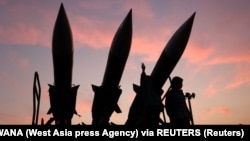As the United States prepares for a peaceful transfer of power on January 20, 2025, National Security Advisor Jake Sullivan shared his views on the most urgent security threats facing the United States:
“If you look out at a strategic level, the competition with the People’s Republic of China is going to be defining for what the world looks like over the course of the next 10, 20, and 30 years, and so that has got to be a paramount priority for the incoming administration.”
National Security Advisor Sullivan underscored that for the United States and China to manage their competition responsibly, both countries must sustain over the long term the channels of communication at every level, particularly the military-to-military level.
The United States’ “most immediate” foreign policy challenge, said National Security Advisor Sullivan, “is Iran and its proxy groups [that] continue to take actions that directly threaten Americans and American interests in the Middle East, and that has to be dealt with on an urgent basis.”
“In between those two, [the PRC and Iran] you have an ongoing war of aggression by Russia against Ukraine representing a larger threat to European security, and therefore, global security. And you’ve got North Krea coming behind to provide troops in that war.”
National Security Advisor Sullivan emphasized that success in dealing with urgent foreign policy issues, including the United States’ long-term competition with the PRC, requires a bi-partisan foundation.
“And many aspects of the policy that we have pursued in this administration, with respect to the PRC and with respect to the Indo-Pacific, have been bi-partisan. … [T]he same is true with respect to Ukraine, where there has been strong bipartisan support and votes in both the House and the Senate for the resources and the strategy for Ukraine. So from our perspective, we would like to see that continue.”
Those are decisions the incoming administration will have to make, said National Security Advisor Sullivan. “All I can say,” he added, “is that when it comes to investing in our alliances, the sources of strength at home, the protections of our advanced technologies, these are the things we’re going to continue to advocate because we think that they are not political issues. They’re American issues that can serve all of the people of this country.”






